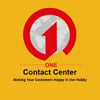Consumers in every industry experience buying pain and buyers can be categorized into three classes based on these levels. Spendthrifts making about 15% of your consumers would spend more before hitting their pain level. A whopping 61% will be average spenders while the remaining 24% will be the Tightwads. The tightwads spend less on average before hitting their pain point.
Three (3) Types of Buyers Exist, Understand Each Group
Which type of buyer is most difficult to convert?
Of the three groups, the TIGHTWADS are the hardest to convert.
Well, it makes sense to minimize the buying pain for this group and the others. By reframing value in a way that splits the payment into smaller increments, increasing value with bundling so consumers can pay in one fell swoop, and using the right choice of words, response rates among tightwads can be significantly increased.
Admitting Shortcomings to Highlight Strengths
If you’re wondering whether it would make sense to admit your faults to consumers, you can ultimately turn this into an opportunity to highlight your strength. Blaming external/other forces for your shortcomings may make you appear helpless to your customers.
On the other hand, admitting honest errors and highlighting how you could do better will make you seem in control of the situation and not prone to making flimsy excuses.
Urgency Still Works, But Use it the Right Way
Urgency is one of the older tricks in the books, but it still works quite alright. However, it can only be effective when your prospects also get clear follow-up instructions on what actions they should take.
Don’t just invoke that sense of urgency, drive them to take specific actions they should take and not just dish out vague instructions.
Use Immediate Stimulation to Instantly Light Up their Minds
Customers feel instant gratification when they are rewarded after doing business with you.
From research, we’ve come to understand the power of instant gratification and immediate stimulation in getting people to take actions. Humans are wired this way and are more willing to take actions when we feel our problems can be solved quickly.
When you are able to make consumers feel instant rewards, they will be more willing to purchase your product or services. Words like “instantly”, “fast”, “new”, etc will easily light up the switch in most people. Just be sure to keep to your words.
Establishing a Rival to Define Your Audience
To carve out a loyal customer base, you’ll need to find you’re the true voice of your brand. How else would you be able to do this without identifying what you stand against?
To define and divide your ideal customers, you’ll need to identify those ideas, beliefs, and perceptions you stand against.
It did work wonders for Apple. The company took a stand against PCs that were deemed “boring and not quite cool computers”.
Standing for a Meaningful Cause or Ideal
Have you seen how Zappos emphasizes their commitment to customer service all day long? Have you seen how TOMS would donate a pair of shoes for every pair they sell?
Both of these companies have created a brand that reflects their values and ideals. While they may like your products, your most loyal customers will be those who absolutely love what your brand stands for.
Playing the Devil’s Advocate to Reinforce Customer Loyalty
When people are confronted with someone who truly appears to oppose their position, they begin to try to understand their point of view.
You might have heard of how the Catholic Church would usually appoint a lawyer to dig out reasons against an individual to be canonized. Research from human behavior has shown that this can actually have an opposite positive effect.
Well, you can also play your own devil’s advocate. You can bring out peculiar objections and issues and then confront this with clear solutions. While this will dismiss your audience’s apprehension, it can also help reinforce their loyalty.
Rather than hinder their decision making, this can end up increasing their resolve.
Using Reciprocity & Surprise for Customer Retention
Surprise them with something — even something small will do.
Reciprocity is a powerful force in business and it is little wonder that lots of businesses are trying to utilize it to their advantage. On your own, you can stand out to adding an element of surprise to your strategy.
Surprising them with something, even the smallest of gestures can have a profound effect on consumers when you try to show appreciation for their patronage through reciprocity.

